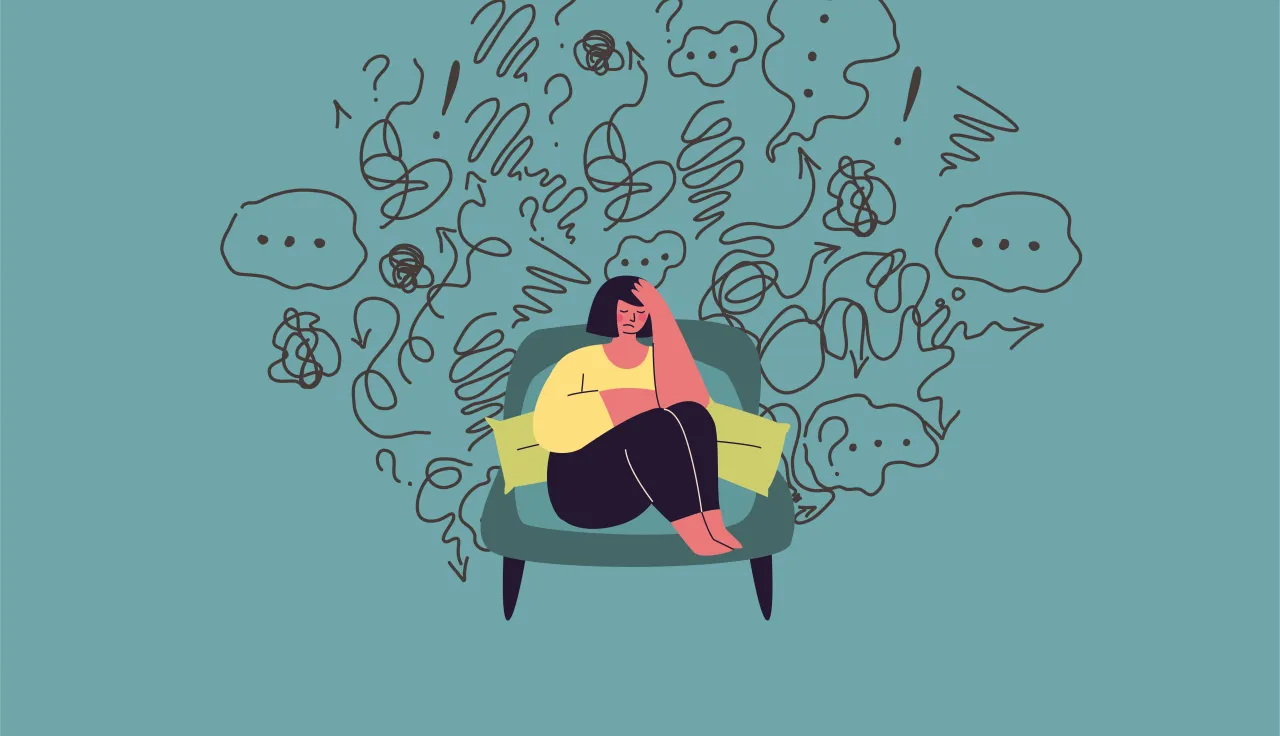Four things not to say when talking about mental health

Language matters. Especially when talking about mental health. Using language that is considered discriminatory or stigmatising has a far-reaching and long-term impact on people, their families, their communities, and the whole society.
Using appropriate language is not an exercise in linguistic agility or political correctness but fundamental respect for the integrity and dignity of people, according to the experts.1 Words are crucial to eliminating negative stereotypes attached to mental illness and their consequences now and in the future.
Research shows that when stigma is present, people avoid seeking help ― help that could be lifesaving. This is true too, during armed conflicts, which often have direct and serious consequences on people's mental health and well-being.
The mental health and psychosocial needs of people caught up in conflict must be a part of the growing attention to mental health worldwide. Since 2007, when the first mental health and psychosocial support (MHPSS) adviser was hired, the ICRC has worked to ensure that people affected by conflict and other situations of violence have access to mental healthcare that meets universally recognised standards.
This year's World Mental Health Day is an opportunity for us at the ICRC to highlight what not to say when talking about mental health.
Committed suicide: We should say "suicide death" or "died of suicide" as it avoids discriminating against a person who lost their battle against a disease and is a consequence of an illness.
A person is "schizophrenic.": Saying this means labelling a person by their mental illness. Instead, say: a person has a diagnosis of schizophrenia.
Drug addict, drug abuser, drug user, alcoholic and drunk: Addiction is a chronic but treatable medical condition. Using person-first language shows that it is an illness rather than the person that is the problem. Avoid terms that have negative associations, punitive attitudes, and individual blame. Instead, say any of the following:
- A person with a substance use disorder
- A person with opioid addiction
- A person with alcohol use disorder
- A person who misuses substances or alcohol
- A person who engages in unhealthy/hazardous alcohol or other substances used
Mental patient: Similar terms include lunatic, deranged, psycho, crazy, and mad. Such language is derogatory and offensive and reinforces stigma. The preferred language is:
- A person is 'living with' or 'has a diagnosis of mental illness or
- A person with a psychosocial impairment
To conclude, everyone has different needs so there is no one-size fits all approach to mental health care. It is also important to remember that people are resilient, even in a crisis. MHPSS is not passive, it is active, respecting people's agency and strengthening their resilience in the face of adversity by allowing people to resume functional lives.
The COVID-19 pandemic illustrated that mental health cannot wait. There is no health without mental health, since health is not merely the absence of disease or infirmity, but a state of complete physical, social, and mental well-being (WHO Constitution). However Mental health is not a 'COVID phenomenon'. The ICRC works to ensure that people affected by conflict and other situations of violence have access to mental healthcare that meets universally recognised standards. From 10 MHPSS programs in 2010, to 279 in 2021, ICRC MHPSS activities have grown significantly. In 2021 we reached 726,748 beneficiaries worldwide. Although MHPSS needs have gained more prominence in recent years, there remains a large gap between the needs and the access to care provided (WHO, 2017).
You can help by advocating for mental health by:
- Remembering suicide is a public health issue
- Advocating that mental health is just as important as physical health
- Using empowering language
- At all opportunities, bust myths about mental illness to address stigma.
- Use preferred language to ensure sensitivity and accuracy
1 CBM Disability Inclusion Development toolkit. (Page 24)



